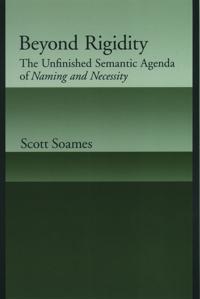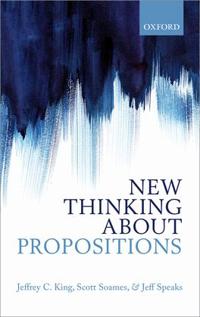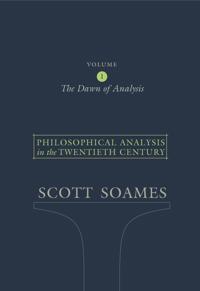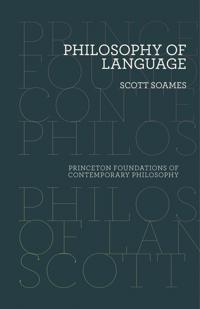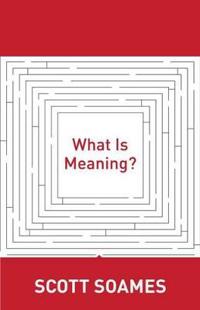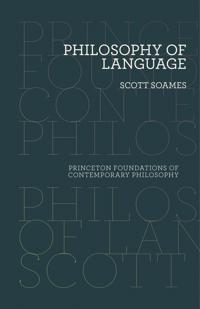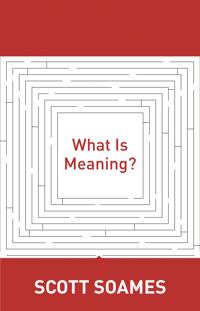Beyond Rigidity (Häftad)
avScott Soames
ISBN: 9780195145298 - UTGIVEN: 200307In this fascinating work, Scott Soames offers a new conception of the relationship between linguistic meaning and assertions made by utterances. He gives meanings of proper names and natural kind predicates and explains their use in attitude ascriptions. He also demonstrates the irrelevance of rigid[...]
New Thinking About Propositions (Inbunden)
avJeffrey C. King, Scott Soames, Jeff Speaks
ISBN: 9780199693764 - UTGIVEN: 2014-03Philosophy (especially philosophy of language and philosophy of mind), science (especially linguistics and cognitive science), and common sense all sometimes make reference to propositions-understood as the things we believe and say, and the things which are (primarily) true or false. There is, howe[...]
Syntactic Argumentation and the Structure of English (Övrig)
avScott Soames, David M. Perlmutter
ISBN: 9780520038332 - UTGIVEN: 1979-07-25Philosophical Analysis in the Twentieth Century (Häftad)
avScott Soames
ISBN: 9780691122441 - UTGIVEN: 2005-01This is a major, wide-ranging history of analytic philosophy since 1900, told by one of the tradition's leading contemporary figures. The first volume takes the story from 1900 to mid-century. The second brings the history up to date. As Scott Soames tells it, the story of analytic philosophy is one[...]
Philosophical Analysis In The Twentieth Century (Pocket)
avScott Soames
ISBN: 9780691123127 - UTGIVEN: 2005-01-17Presents the history of analytic philosophy since 1900. This book argues that two developments have remade the philosophical landscape - analytic philosophers' success in understanding and distinguishing the notions of logical truth, and acceptance of the idea that philosophical speculation must be [...]
Philosophical Essays: Natural Language: What it Means and How We Use it: v. 1 (Övrig)
avScott Soames
ISBN: 9780691136813 - UTGIVEN: 2008-12-08The two volumes of Philosophical Essays bring together the most important essays written by one of the world's foremost philosophers of language. Scott Soames has selected thirty-one essays spanning nearly three decades of thinking about linguistic meaning and the philosophical significance of langu[...]
Philosophical Essays: The Philosophical Significance of Language: v. 2 (Övrig)
avScott Soames
ISBN: 9780691136837 - UTGIVEN: 2009-03-09The two volumes of "Philosophical Essays" bring together the most important essays written by one of the world's foremost philosophers of language. Scott Soames has selected thirty-one essays spanning nearly three decades of thinking about linguistic meaning and the philosophical significance of lan[...]
Philosophy of Language (Inbunden)
avScott Soames
ISBN: 9780691138664 - UTGIVEN: 201007In this book, one of the world's foremost philosophers of language presents his unifying vision of the field - its principal achievements, its most pressing current questions, and its most promising future directions. In addition to explaining the progress philosophers have made toward creating a th[...]
What is Meaning? (Inbunden)
avScott Soames
ISBN: 9780691146409 - UTGIVEN: 201008The tradition descending from Frege and Russell has typically treated theories of meaning either as theories of meanings (propositions expressed), or as theories of truth conditions. However, propositions of the classical sort don't exist, and truth conditions can't provide all the information requi[...]
Philosophy of Language (Häftad)
avScott Soames
ISBN: 9780691155975 - UTGIVEN: 201210In this book one of the world's foremost philosophers of language presents his unifying vision of the field--its principal achievements, its most pressing current questions, and its most promising future directions. In addition to explaining the progress philosophers have made toward creating a theo[...]
What is Meaning? (Häftad)
avScott Soames
ISBN: 9780691156392 - UTGIVEN: 201210The tradition descending from Frege and Russell has typically treated theories of meaning either as theories of meanings (propositions expressed), or as theories of truth conditions. However, propositions of the classical sort don't exist, and truth conditions can't provide all the information requi[...]
Analytic Philosophy in America: and Other Historical and Contemporary Essays (Inbunden)
avScott Soames
ISBN: 9780691160726 - UTGIVEN: 2014-04-29


